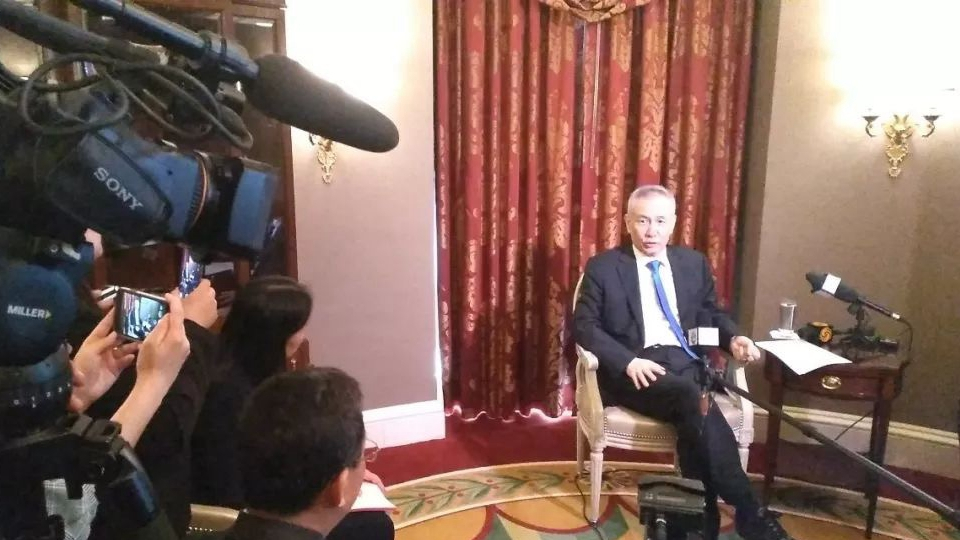
(Photo via CGTN)
Chinese Vice-Premier Liu He, who leads the Chinese delegation for the 11th round of high-level economic and trade consultations with the US side, spoke with Chinese media on Saturday. He said that China "deeply regrets" that the US has increased additional tariffs on $200 billion worth of Chinese goods from 10 percent to 25 percent and China will have to take necessary countermeasures. He also said that China will treat China-US economic and trade frictions rationally for the benefits of people in China, US, and the world.
“The two sides have agreed on many aspects, but frankly there are also differences. The disagreements, which we haven’t disclosed to the media in the past, are mainly in three areas,” Liu said when answering question from Phoenix TV.
First, he said, China and the US are discussing whether the tariffs should be cancelled. The Chinese side believes tariffs are the starting point for trade disputes between the two sides. If an agreement is to be reached, all the tariffs must be cancelled. It’s not purely an economic issue, but involves much more.
The second disagreement is on purchases of US goods. The two heads of state had reached a consensus on this issue in Argentina. At that time, both sides agreed to a preliminary figure for purchases of US goods. Now both sides have different views, we think this is a very serious thing that cannot be changed easily.
The third disagreement is on the balance in the agreement text. Every country needs its own dignity, so there has to be a balance in the text. Liu added, on the whole, the two sides are meeting each other half way. However, on some key issues, more discussions are needed.
Liu said, “We believe that these are major matters of principle and every country has its principles. The attitude is very clear that we won’t give in on matters of principle. We hope that both sides can show flexibility because every negotiation must have space of flexibility. Now, we are entering a transitional phase.”
“The US side thinks that we seem to have promised something in the text in the past. How do you change that now? We believe that any change is very natural before the two sides have completed the deal. It is inevitable in the whole process. So we don't think China is going backwards. We don't agree with this (view). We just have some differences on the wording of the text, which we hope to solve. Hence, we think it is unnecessary to overreact on this issue,” Liu said.


